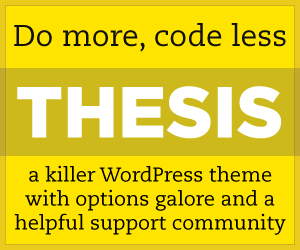 It’s easy, if you love to write. If you’re like many aspiring authors, you don’t really love to write: You would love to have written. If you dream of six-figure advances, keep dreaming. But if you dream of seeing your book on book store shelves, attending the occasional literary festival and rubbing elbows with other published authors, and signing your books for readers at a table in the local grocery store, keep reading.
It’s easy, if you love to write. If you’re like many aspiring authors, you don’t really love to write: You would love to have written. If you dream of six-figure advances, keep dreaming. But if you dream of seeing your book on book store shelves, attending the occasional literary festival and rubbing elbows with other published authors, and signing your books for readers at a table in the local grocery store, keep reading.
The best writing advice I ever got came from Tom Clancy. He had just done an online chat, where he fielded questions about writing and publishing and finding agents and selling books from people who had yet to commit one word to paper. “Just write the damned book,” he said. In other words, there’s no point in worrying about finding an agent or a publisher until you have a tangible product to sell. Once you’ve proven your ability to produce a product, you might get contracts for a series of unwritten books. But first, you have to prove you’re serious – about writing, not about having written. Or, as Rick Hautala says, “You’re only as good as your last ISBN.”
The work doesn’t end with the words, “The End,” either. Next comes painstaking proofreading – wherein you read the work from cover to cover, backwards and forwards, fixing the typos, eliminating unnecessary words, adding missing words, crafting effective transitions from though to thought, and making sure you haven’t changed your heroine from an innocent blond-haired, blue-eyed beauty to a raven haired, green-eyed vixen. If you’re reading this and muttering, “Isn’t that what editors are for?” then you’ve never seen the bill for editing services or worked with a good editor. The sad truth is, if you don’t do this part yourself, your work won’t make it past the acquisitions editor’s trash bin.
Say you choose to self-publish. There’s a cost involved with that, too. Paying printing costs isn’t the same thing as paying a vanity press for flattery. Paper, ink, binding, shipping, storage, and distribution – these things cost money. It’s a realistic cost of doing business, if you’re going to be your own publisher. But even if you go through print-on-demand service like Lulu.com, where all printing, production, storage, and distribution costs are built into the unit price of each book, you may want to pay for an ISBN number and services needed so that you can sell your book through Amazon.com or one of the many brick-and-mortar book stores out there. So you have to learn to look at publishing as a business – not just a starry-eyed dream.
Are you doing this just to hold your own book in your hands? Or do you want to share it with readers who think the book is worth buying? If it’s just for you and your family, then the only buyer whose opinion and price point matters is you. But if you want a wider audience, you’ll have to look at your book with an impartial buyer’s eye. If you hadn’t written it, would you – honestly – pay money to buy it? How much money? This is not to say you should throw your inner critic a party and buy her dinner – your inner critic exists solely to tear you and your fragile ego to shreds. She ought to be locked in a cage and fed table scraps. But you should be practical and you should be respectful of your readers’ hard-earned money.
On the other end of the spectrum, loved ones and close friends should never be put in the position of having to say, “Don’t quit your day job.” Buyers are people who don’t care about you one way or the other; they just expect good value for the money they pay. They don’t hate you like your inner critic does, but they don’t love you like your family and friends do. So if you need help simulating the buyer’s viewpoint, ask a friendly acquaintance to read your book and to tell you, honestly, if it’s something they might buy. If not, why not? Perhaps they’re not interested in the subject (in which case, you should find a friendly acquaintance who is also one of your target buyers), but if they are interested – what’s holding them back? Price or quality? Listen to these people. Next time you send your work out the door, make sure it is as polished and professional looking as it can be, and make sure it meets your readers’ and buyers’ expectations.
The actual work of writing a book is nothing compared to the work involved in getting it polished, published, promoted, and sold, so that readers can enjoy it.
Holly Jahangiri is a professional writer with over twenty years’ experience in technical writing, freelancing, fiction, poetry, and editing. She blogs at It’s All a Matter of Perspective: Mine (http://jahangiri.us/news)
